‘Town hall meetings are the archetype of democracy’
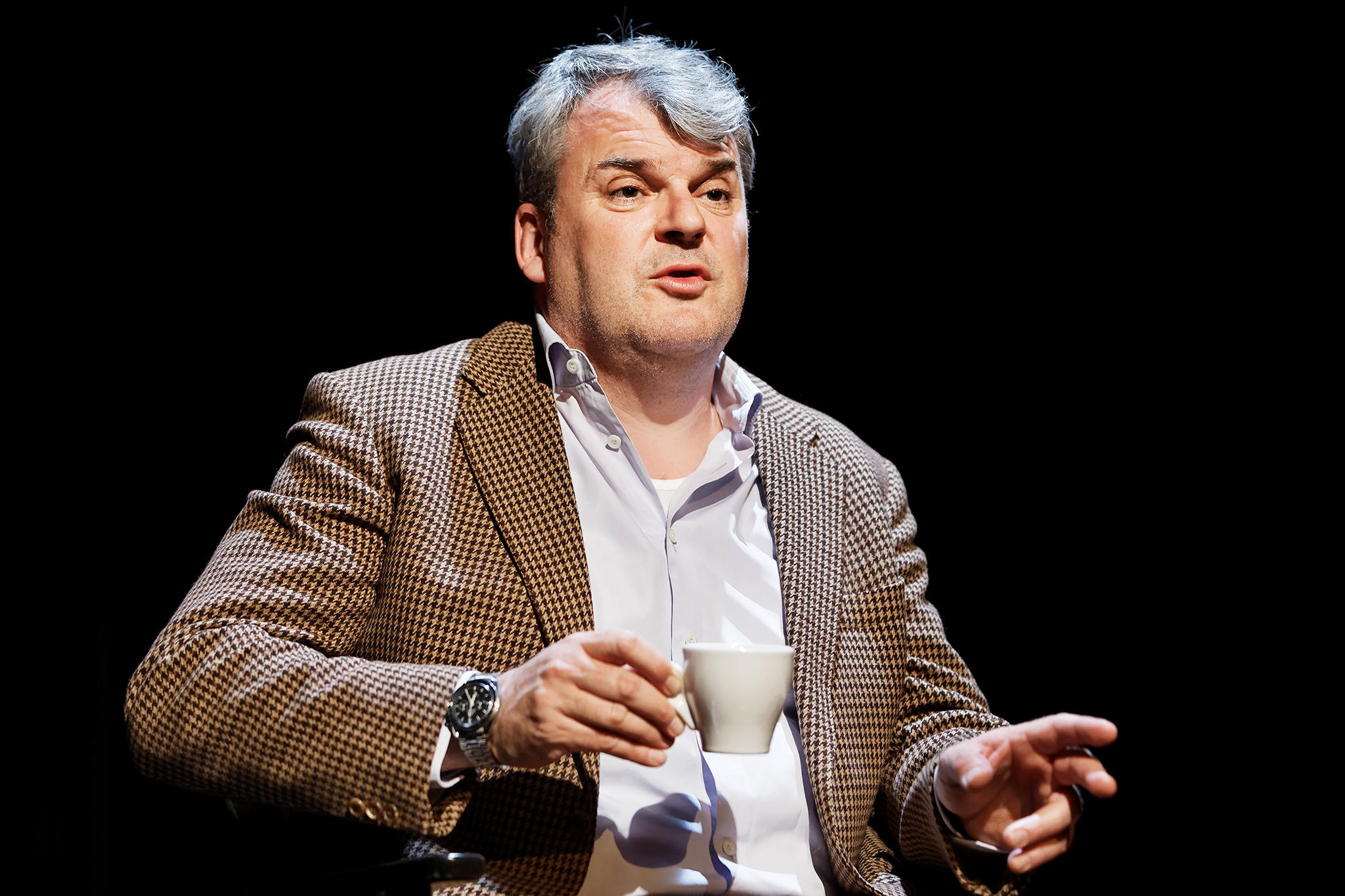
The Swiss comedian and actor Mike Müller is touring Switzerland with a show devoted to town hall meetings. In his stage performance, he displays his fascination for how the Swiss govern themselves on a local level, but he also says it’s scandalous that some people can vote on who gets naturalised.
A few times a year, the locals of some small and medium-sized Swiss communities get together to discuss the community’s budget, the annual accounts, tax rates, a new school building or anything else that’s going on. The discussions are often heated, and afterwards the people cast their votes by raising their hands.
+ How can communities improve the appeal of town hall meetings?
Four-fifths of Switzerland’s communities still have this tool of direct democracy which forms the legislative arm instead of having a parliament.
In his comedy “Town Hall Meetings Today”, Müller turns these gatherings into an entertaining and full-length evening performance.
Who’s Mike Müller?
Mike Müller is a Swiss comedian, political satirist and actor.
He was born in canton Solothurn in 1963 and studied philosophy at the University of Zurich.
He acted in theatre in the 1990s and moved to television and films later. From 2008 to 2016, he hosted the weekly late-night show “Giacobbo/Müller” together with Victor Giacobbo on Swiss public television. Since 2013, he has played the lead in the hit detective show, “The Undertaker”.
In his comedy “Town Hall Meetings Today”, Müller dedicates a whole stage performance to Swiss local democracy.
swissinfo.ch: Why do you make fun of town hall meetings?
Mike Müller: I don’t make fun of them.
swissinfo.ch: So what do you do?
M.M.: (laughs) Town hall meetings provide me with a good platform for portraying different Swiss characters. They are the archetype of democracy, where people get together to discuss current issues. They are also a good way of highlighting obvious problems of direct democracy.
My show is actually very popular with public officials. I’m very careful not to mock rural communities from an urban left-liberal point of view. However, when I talk to officials after the show, they usually agree – after the second glass of white wine – that I’m spot on!
swissinfo.ch: How did you put your show together? Did you attend town hall meetings?
M.M.: No. I took the liberty of using fictional material and made it all up. At the end of every performance, I add some stuff that is particular to the community. For this, I ring the commune’s president and some locals beforehand.
swissinfo.ch: Have you ever attended a town hall meeting?
M.M.: Yes, once, 35 years ago. I now live in the city of Zurich and we don’t have town hall meetings.
swissinfo.ch: Do you like the fact that the local politicians talk directly to the citizens during these town hall meetings?
M.M.: Basically, yes. It’s good that the politicians are forced to justify their moves directly to their communities and that politics and the administration are closer to the people. Germany’s administration, for example, is far away from its people and treats them badly and derogatorily. I have worked in Germany myself. Letters from German tax offices do not have a spark of decency!
It’s different in Switzerland, and I like it. Public offices are very helpful and quick. I once managed to obtain a form from a Swiss public office within ten minutes by mail. The German theatre director, for whom I got it, was so surprised that he was convinced that I had some sort of family relationship with the Swiss office. But all I did was ring the official in charge of my affairs.
swissinfo.ch: In the trailer you say: “After a long time, we have a naturalisation on tonight’s agenda – well, at least I hope so for Mr Stojadinovic.” Can you explain this joke to foreigners?
M.M.: Unfortunately, this is not a joke, but brutal reality. In Switzerland, the local community decides whether someone gets naturalised or not. The procedures are different in every community. In the city of Zurich, for example, it’s pretty easy as it’s only a formal procedure. However, there are still places in Switzerland where citizens decide on someone’s naturalisation by voting at town hall meeting. There have been cases of someone being denied naturalisation because they did not know the local baker. Countless applications from people from the Balkans have been denied, not because a husband beat up his wife or travelled without a valid ticket, but because their name ended in “ic”. I find this procedure appalling.
swissinfo.ch: In your show, you discuss many local political issues such as spending too much time debating trivial things and citizens who drag out discussions with unimportant issues, as well as nepotism and small-town views. Is it possible to explain Swiss local politics to a foreigner in just a few sentences?
M.M.: I turn Swiss local politics into useful material for my jokes. I’m not saying that local politics is all about nepotism, however, it’s part of the truth. Local politics is practical politics, national parties’ lines are not really relevant. Citizens go beyond party lines when it comes to their local communities. In Swiss local politics, the concept of militia is very important. The mayor of Illnau-Effretikon [outside Zurich], for example, manages 150 people in his job but also teaches at a vocational training school. Local politics also depends on where you live. Zurich’s local politics is completely different from Schangnau, a small village in the Emmental region, for example.
swissinfo.ch: The town hall meeting in your show gets completely out of hand. Does this usually happen in Swiss town hall meetings?
M.M.: It can happen. At least this is what I experienced when I attended my first and only town hall meeting. The commune’s president was furious and resigned there and then, just because there was some dispute over a rezoning issue.
swissinfo.ch: Don’t you think town hall meetings are a thing of the past?
M.M.: I think town hall meetings are basically a good thing. They are certainly cheaper than maintaining a parliament. But it depends on the size of the community. For example if only 150 people attend a town hall meeting in a town like Solothurn with 16,000 citizens, it doesn’t really work. I think that it’s up to the residents to decide whether they want to keep their town hall meetings or not. Professional structures are not necessarily better. Random things can happen at town hall meetings, but I guess this is generally the case in a direct democracy. I don’t always understand what all the popular votes are about. Direct democracy is complicated and has a lot of disadvantages.
swissinfo.ch: But it also has advantages?
M.M.: Yes. As I mentioned before, you won’t find a Swiss person who thinks direct democracy is nonsense. The Germans can only make decisions every four years. This is pretty poor and as you can see at the moment, stalemates do still happen there.
Translated from German by Billi Bierling

In compliance with the JTI standards
More: SWI swissinfo.ch certified by the Journalism Trust Initiative









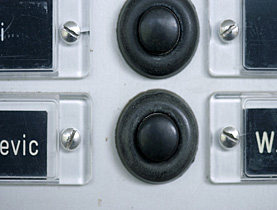
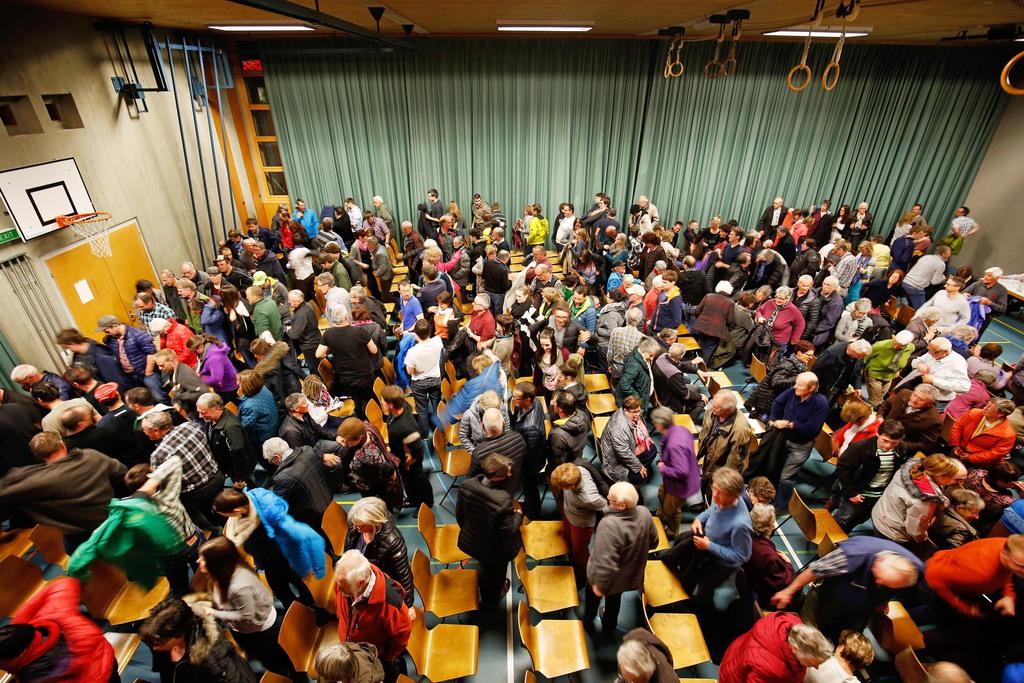
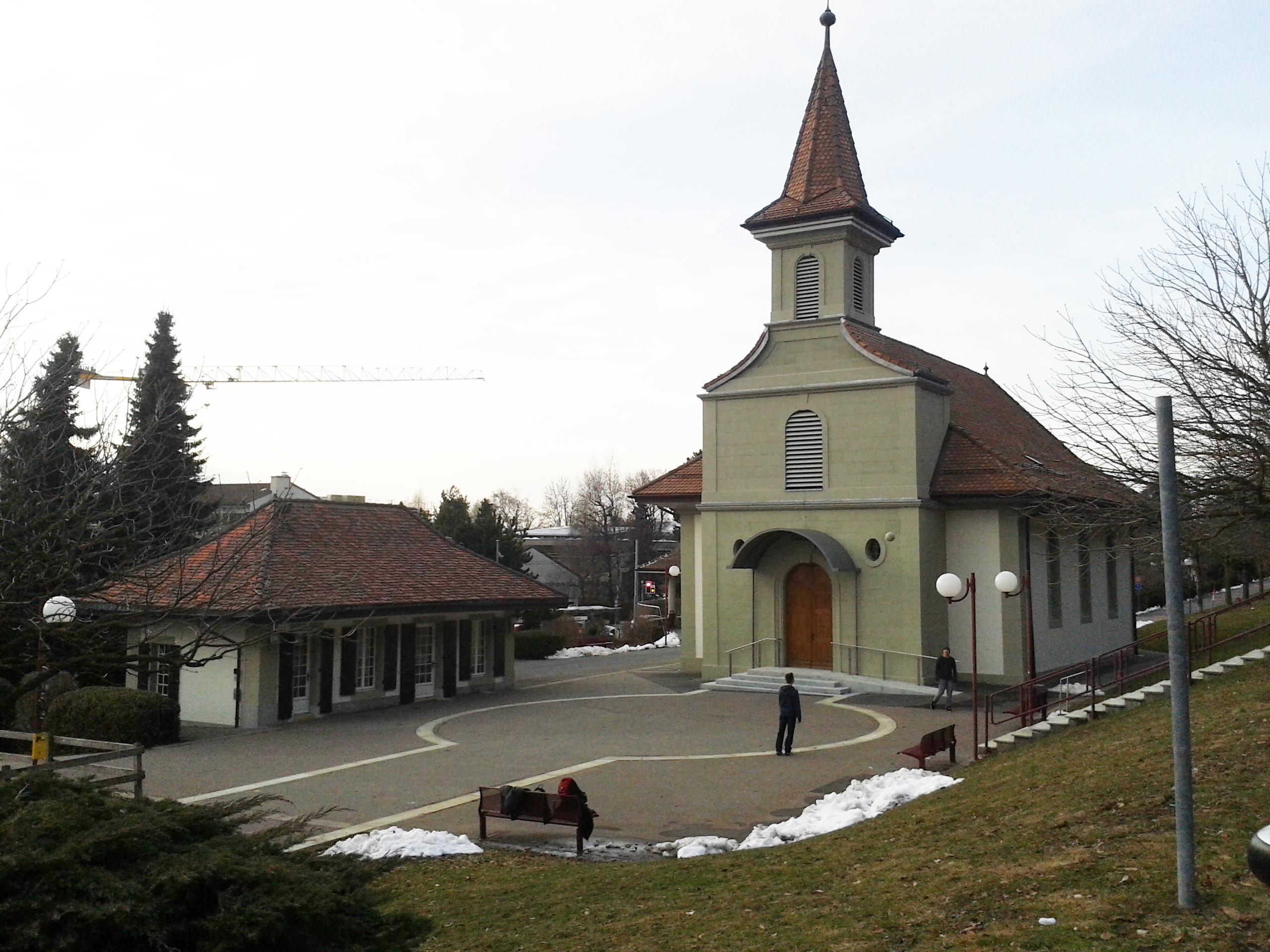

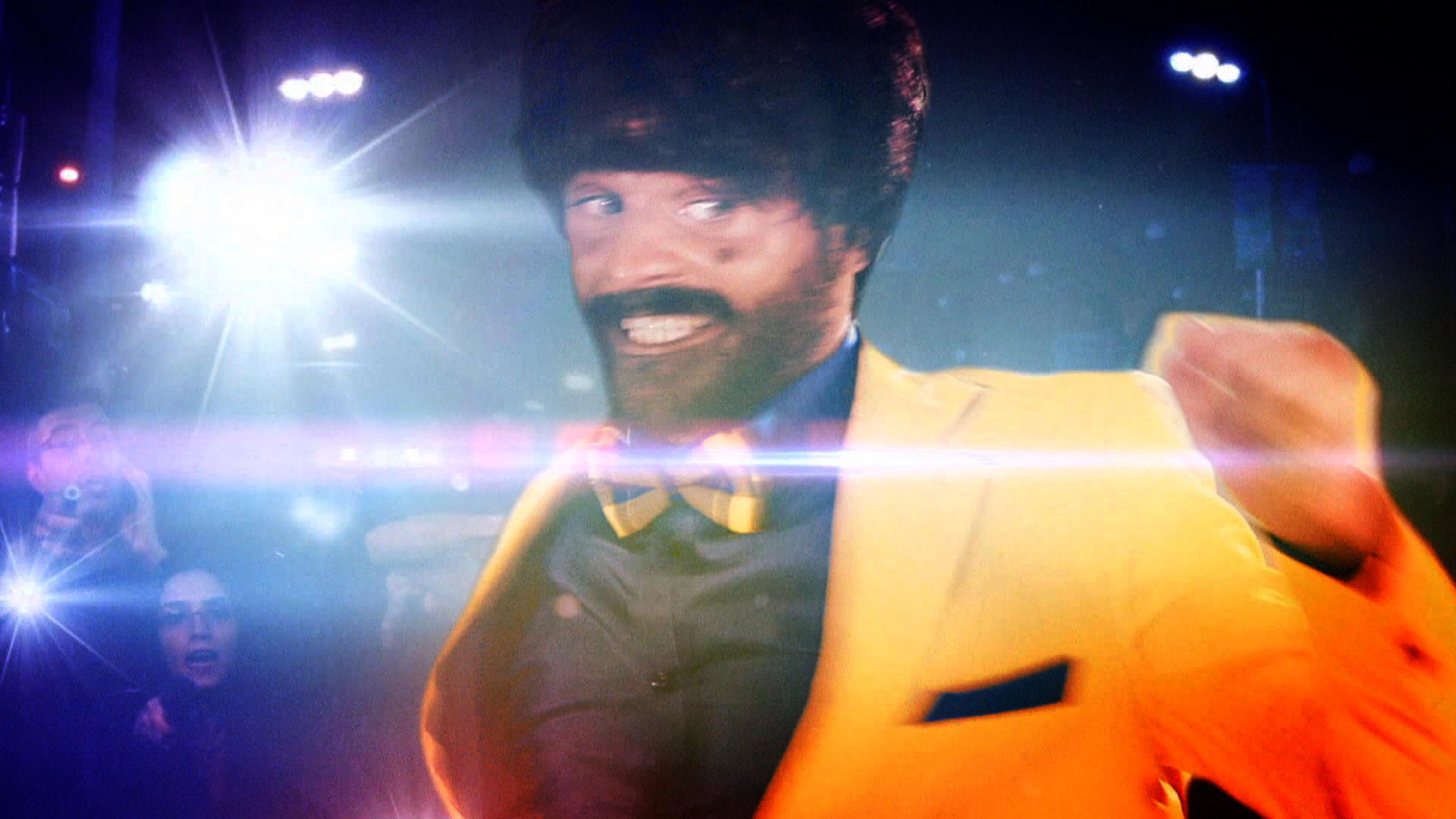
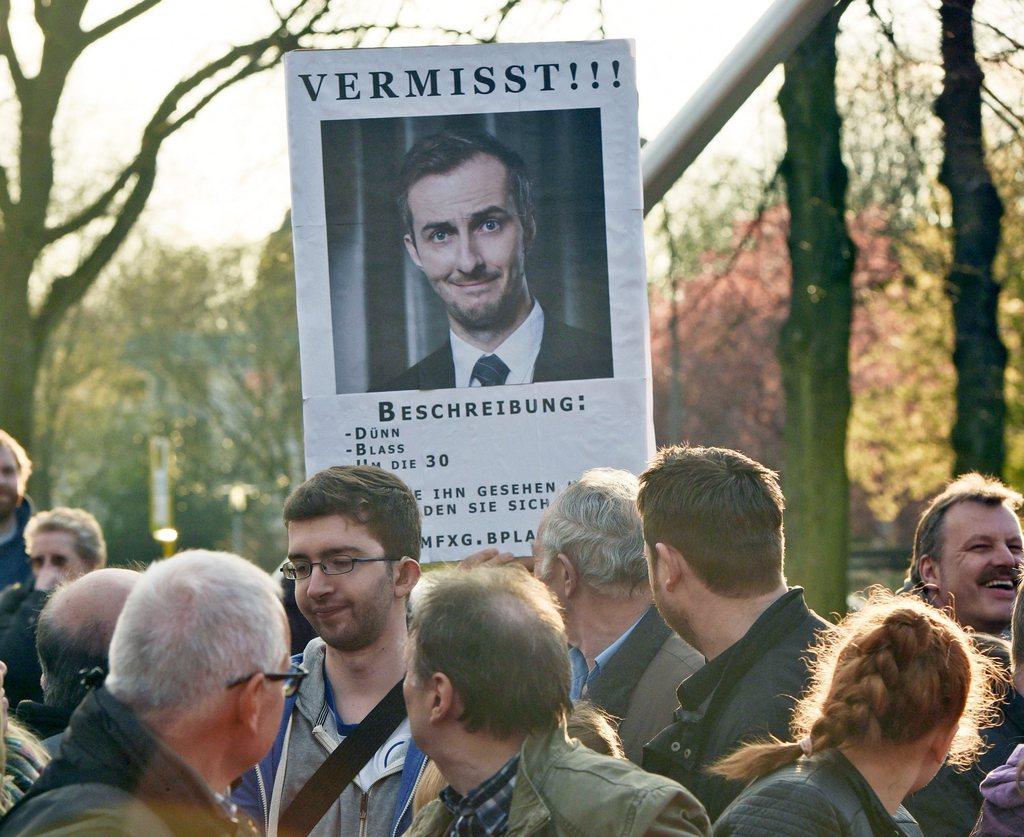

You can find an overview of ongoing debates with our journalists here . Please join us!
If you want to start a conversation about a topic raised in this article or want to report factual errors, email us at english@swissinfo.ch.